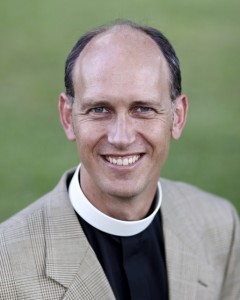The first half of the liturgical year is a mad dash — and nobody knows this more than the altar guild. Did you order the palms? Do we have enough taper holders? Swap out the altar frontal…again! But then we hit Pentecost and Trinity Sunday, and it all slows way down. Once the summer schedule is done and you’ve put up the green frontal, you can pour yourself a glass of wine. You’ve made it again. You’ve entered the long “Season after Pentecost.”
It’s interesting, this season that takes up a full half of the year. It doesn’t even get its own name; it’s just the season after something else. And yet, there’s a profound wisdom in this. We certainly need the seasons that come first. When the liturgies are done well, they provide the space our spirits need to process (often at a subconscious level) all the significant moments of our lives. From our deep-heart yearnings in Advent to our bereavements at Holy Week, the liturgies throughout the seasons match the breadth of our human experience, speaking God’s eternal truths into them.
But life isn’t simply a catalogue of extremes. Certainly, the extraordinary moments are significant and formative. And yet — in their ways — so are the ordinary days. Going to work, fixing meals, getting stuck in traffic, wasting too much time on the internet…within these ordinary experiences we are also reaching conclusions about who God is, who we are, and what it means to be a follower of Christ.
This Season after Pentecost is commonly known as “Ordinary Time.” It’s really quite a happy accident that we call it this. On a technical level, it gets this name because the Sundays are named by ordinal numbers, that is, “The First, Second, Third Sunday after Pentecost,” and so on for the remainder of the year. But in English, of course, the more familiar definition of ordinary is common or mundane or, for the more literarily inclined, quotidian.
In her recent book, The Quotidian Mysteries, Kathleen Norris writes: The Bible is full of evidence that God’s attention is indeed fixed on the little things. But this is not because God is a Great Cosmic Cop, eager to catch us in minor transgressions, but simply because God loves us — loves us so much that the divine presence is revealed even in the meaningless workings of daily life. It is in the ordinary, the here-and-now, that God asks us to recognize that the creation is indeed refreshed like dew-laden grass that is “renewed in the morning” (Ps 90:5), or to put it in more personal and also theological terms, “our inner nature is being renewed every day” (2 Cor 4:16).
The church in her wisdom has given us a whopping half-year to affirm the value of plain ol’ ordinariness. Nothing is overlooked or dismissed as insignificant. God will never pass us by for our little lives and little projects. For our God is in it all, delighting in us, his children. After all, we are living in the days after Pentecost. We have been redeemed in love and filled with the Spirit — which means — in the mysterious paradox of God, that nothing is merely ordinary anymore.
The Rev. Eric Stelle, St. John’s, Gig Harbor, WA, Diocese of Olympia

